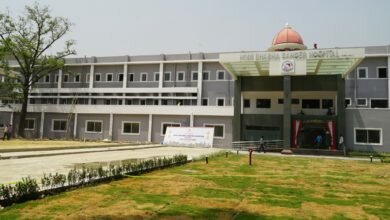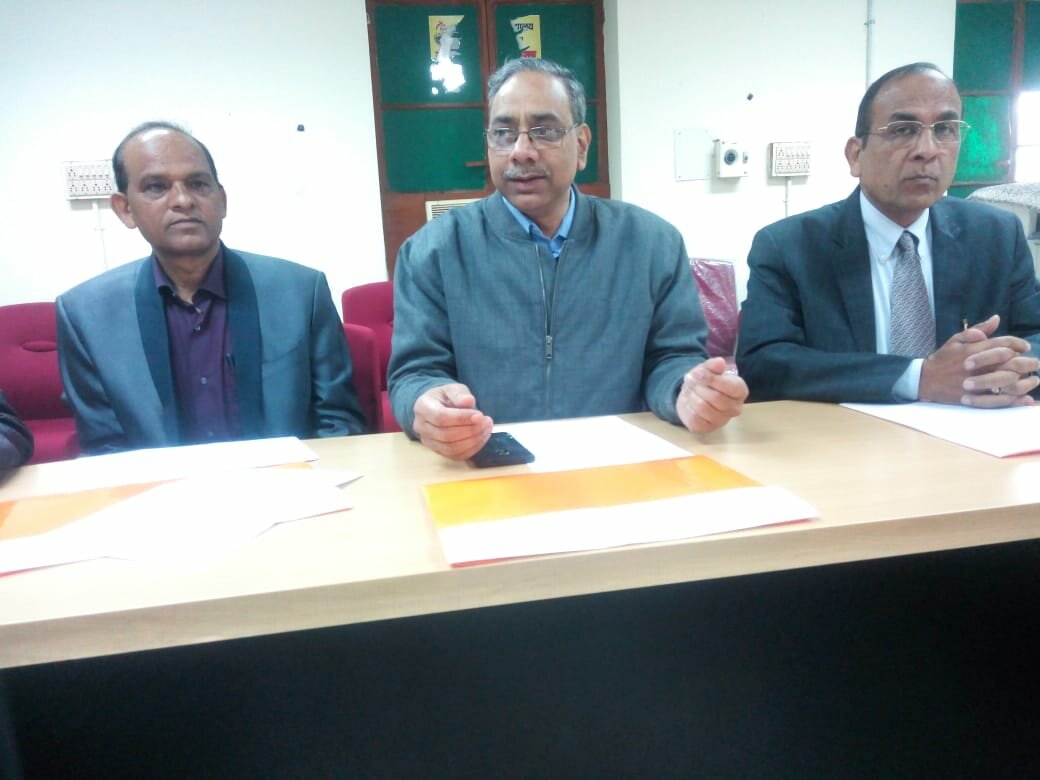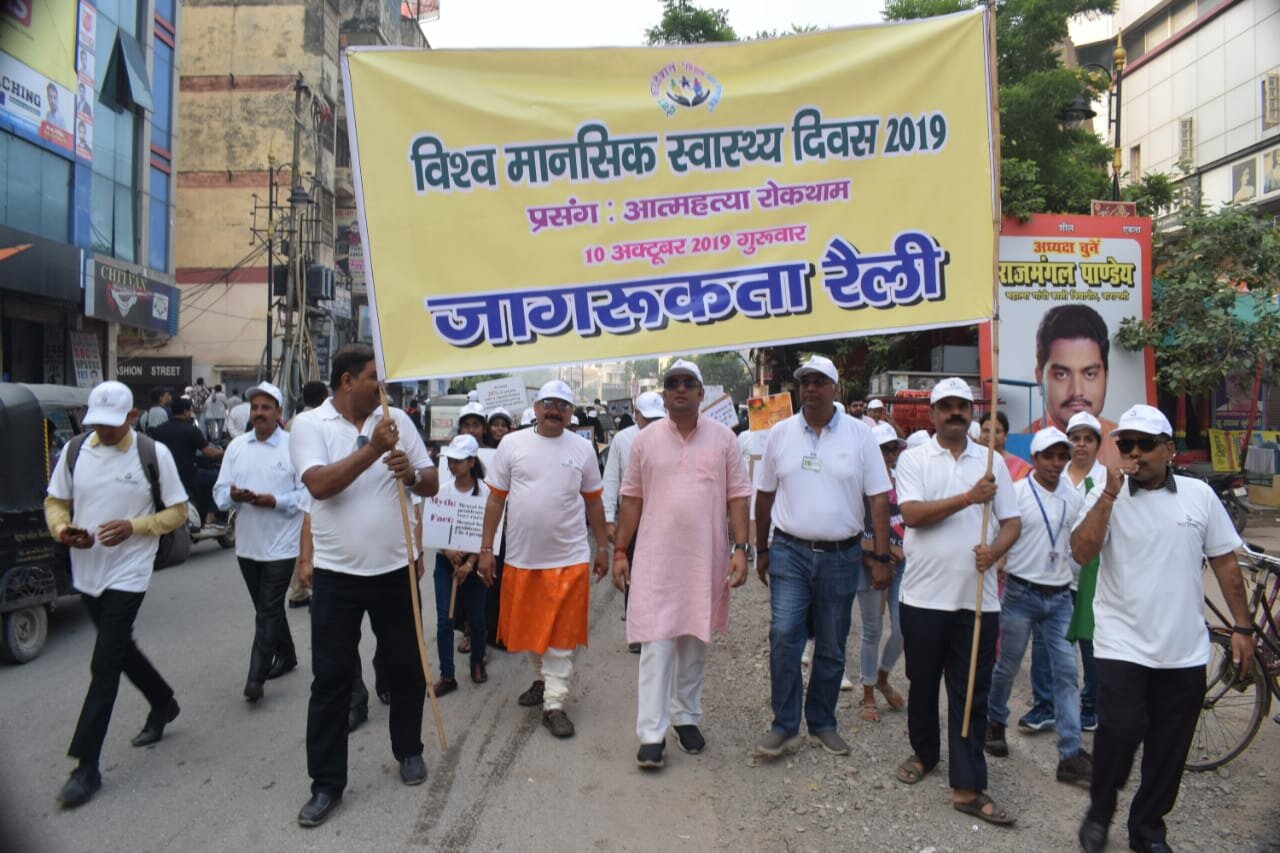CRY Study on Neo-Natal Health
Eight in every 10 neonatal death occurred within 7 days of the birth, revealed a study conducted by CRY- Child Rights and You

CRY Study on Neo-Natal Health
Study highlights –
- 82 per cent of neonatal deaths took place within 7 days of birth
- 78 per cent of child births were institutional, but 86 per cent of them were conducted by ANMs and only 14% by doctors
- 93 per cent of women were registered with Anganwadi centres and 88 per cent got counselling by AWW or ASHA, but only 11.2 per cent got full ANC check-ups
- Only 28 per cent mothers reported that their children received any post-natal check-up in the first week of birth
Varanasi: Eight in every 10 neonatal death occurred within 7 days of the birth, revealed a study conducted by CRY- Child Rights and You. According to the study, 82 per cent of deaths of new-borns were reported to be early neo-natal deaths that took place within a week of child birth. The study named “An In-depth Study on Neo-Natal Health in 3 districts of Uttar Pradesh” was conducted in the rural areas of Kaushambi, Sonbhadra and Varanasi districts of UP – three among the backward districts in terms of neonatal health in the state.
The study findings further revealed that majority of neonatal deaths occurred at home (58 per cent) and 38 per cent occurred in health facilities (private: 20 per cent and public: 18 per cent) and the trend was similar in all the 3 districts. Neo-natal Pneumonia and Respiratory Distress Syndrome emerged as the two highest probable causes accounting for 27 percent and 24 percent of neonatal deaths overall.
Though, majority of deliveries were institutional (78 per cent), 69 per cent of the women who delivered in an institution, were discharged on the same day of the delivery. Only 28 per cent mothers reported that the child received any post-natal check-ups in the first week after birth, thus, grossly compromising the need of postnatal care to mother and her child and need to focus on improving the quality of institutional care and formulating and implementing the delayed discharge protocols as the institutional care can significantly bring down Neonatal Mortality Rate (NMR) especially early NMR.
The study further suggested that among the women who had institutional delivery, only one in every ten deliveries (14 per cent) were assisted by a doctor and a majority of them were conducted by an ANM (86 per cent). This figure was highest in Kaushambi where 88 per cent of delivering mothers were assisted by an ANM and only 12 per cent by a Doctor. The findings also highlighted that 17 per cent of the deliveries were not assisted by any skilled or trained birth attendant (attended to by Dais and relatives).
CRY Study on Neo-Natal Health
Findings of the study were made public through a webinar which included a session where eminent experts shared their insights. The panel of experts included Dr Ved Prakash, General Manager Medical and Health (National Health Mission) Uttar Pradesh, Dr Neelam Singh – Secretary, Vatsalya (UP) and Managing Trustee of Jan Mitra Nyas (UP). The panel was moderated by Dr. Ritu Priya, Professor of the Centre of Social Medicine and Community Health (JNU) and honourable member of the board of trustees at CRY.
Setting the context of the webinar and explaining the need to conduct the study, Soha Moitra, Regional Director of CRY (North) said, “CRY has been working in 60 villages of Kaushambi, 50 villages of Varanasi (Rural) and 28 villages of Sonbhadra district through various program initiatives to provide holistic care and protection to infants. The organisation felt the need to conduct this research to delve deep into the causal factors leading to neo-natal deaths, and the required actions at system, community and personal level.”
“This study comes at a crucial time, when the system is already struggling to deliver due to constraints brought in by the COVID-19. The ongoing pandemic has directly impacted child survival, health and nutrition significantly with the access to health care facilities and nutritional meals being limited to the poor and vulnerable children. We hope this study and today’s discussion serves as a critical resource to inform and guide programming and policy interventions working towards the cause of child survival during the COVID-19 pandemic and beyond”, she added.
Highlighting some of the findings of the study, Prof. Ritu Priya, Professor of the Centre of Social Medicine and Community Health (JNU) and honourable member of the board of trustees at CRY, said, “India contributes to one-fifth of global live births and more than a quarter of neonatal deaths. In India, the NMR stood at 23 deaths per thousand live births in 2018 (SRS 2018). Around 72 percent of total infant deaths and more than half of under-five deaths fall in the neonatal period; deaths in the first week alone account for 55 percent of total infant deaths (SRS 2018).”
Underscoring that the study reflects the socio-cultural, economic and healthcare determinants of neonatal health, Ritu Priya said, “The study highlights the on-ground reality in CRY intervention areas in rural Uttar Pradesh, with a focus on the community’s beliefs and practices, access, availability, affordability and utilization of health services. Two major findings emerge: first, the state of maternal health with high anaemia and poverty generated conditions leading to over 30% Low Birth Weight (LBW) babies with acute respiratory diseases as immediate cause of death and secondly, the limitations of the government health services that lead to lack of trust between the service providers and the community members adding to the detriment of neonatal health. Lack of availability of adequate infrastructure and well trained staff, and lack of cordial interaction with patients has emerged as chief barriers in the study. Most of these challenges would have got further pronounced due to the COVID pandemic and therefore ensuring that maternal and child health services continue to function with greater vigilance is required during this period.”
CRY Study on Neo-Natal Health
Addressing the webinar, Dr Ved Prakash “The SRS 2018 data suggests that the state is doing considerably well in reducing under-5 mortality of children and infant mortality. Also, the immunisation coverage in the state is showing constant improvement leading to lesser deaths. However, to curb neonatal deaths specifically early neonatal deaths there is a need to address ANC and nutrition issues during pregnancy and also delivery complications”. He further said “civil society organisations play a relevant role in effectively implementing government interventions at grass root level and are a great medium of feedback and redressal”.
Emphasising on need of extended ANC, Dr Neelam said “As the data suggests most of the neonatal deaths are taking place within 7 days of child birth, thus, there is a need to see maternal and child health together in one frame especially at district and block level to effectively address neonatal mortality. To end neonatal mortality there is a need for extended ANC”.
Putting light on the challenges during COVID 19, Shruti Nagvanshi shared maternal and child health facilities were badly hit during initial days of lockdown imposed due to the pandemic. Though, the system is getting normalised now but due to misconceptions and uncertainty of the pandemic, families especially from marginalised communities are being deprived from medical attention.
The survey also revealed some other important trends as well. A majority of women had normal delivery (89 per cent), and approximately half of them (44 per cent) had high risk pregnancy in terms of low Haemoglobin counts and low weight of women etc. Out of the high risk pregnancies, 29 per cent cases reported home delivery.
A good practice was observed that is majority of women (93 per cent) were registered with Anganwadi centres and 88 per cent of them received counselling from the Anganwadi Workers (AWW) or Accredited Social Health Activists (ASHA) workers. However, only one in every ten women (11.2 per cent) stated that they got full ANC check-ups – the trend revealing a worrying gap in ensuring all 4 prescribed ANCs by AWW and ASHA workers.
Revealing findings related to nutritional needs of pregnant and lactating women, the study highlighted that 93 per cent of the women reported receiving Take-Home-Ration (THR), but 22 per cent did not use it to supplement their own dietary needs. One in ten also stated that they did not have 3 times meal in a day during pregnancy. Four in every 10 respondents (39 per cent) received benefits provisioned under central/state maternity benefit schemes though most of them were registered at AWCs.
CRY Study on Neo-Natal Health
This study has showed that there is a need to adopt state-specific strategies and multi-sectoral approaches to bring down neo-natal mortality, and move closer towards achieving the targets and goals of India Newborn Action Plan (INAP), National Health Mission (NHM), NAPC and Sustainable Development Goals. Policy options for the survival of the new-borns should include community awareness, adopting preventive strategies, enhancing local health infrastructure and increasing investment in child health and related maternal and adolescent health polices and schemes.
Further recommendations made by the study included ensuring adequacy of human resources as per Indian Public Health Standards (IPHS), their training, availability of quality infrastructure, urgent need to shift from generalised strategy to focused approach, universalise quality health services by increasing public provisioning for health, improving the quality of institutional care and formulating and implementing the delayed discharge protocols and promoting post-natal visits. Strictly mandated birth and death registration has also been strongly recommended by the study.





